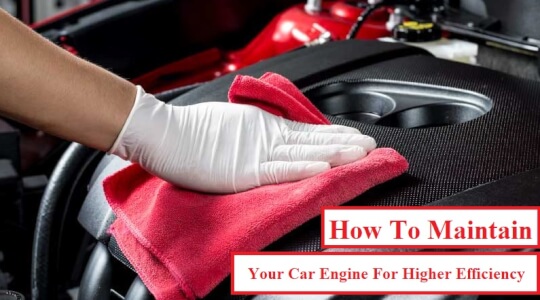Car engines are the essential and central operating units of every vehicle but sadly, none of us spend much time looking after the engines. Engines need to be looked after properly and analyzed frequently and given general maintenance to keep them running.
To avoid any vulnerabilities and serious problems, it’s vital to regularly check your engine. However, there are some significant parts and mechanisms which need a weekly inspection, if not daily. If you regularly do these inspections and general maintenance, your engine will last longer and perform more efficiently.
Check the engine’s cooling system
The cooling system in an engine helps it to maintain its internal temperatures stable and to transfer the excessive heat out of the engine. The cooling system should not be left unattended every time when you plan a long journey.
The easiest way to look after and keep your engine from overheating is by checking that it has the needed quantity of coolant flowing inside the engine’s cooling chambers. Keep the coolant level above the minimum level but below the maximum level to avoid the leakage. Maintaining the cooling system costs you much less than the damage done by overheating.
Clear the engine’s nose to facilitate breathing.
The engine utilizes the air to burn the fuel in the combustion chambers and it breathes in just as that humans do. It is essential that you regularly check the vehicle’s air filters. Cars need a continuous stream of air to run properly. With the exception of fuel, the air is a basic component in charging the car engine with energy.
The air needs to enter into the engine regularly, without any constraints. Take a look at your air filter and check that it is dirt-free and free of bugs, etc. Switch it with a clean filter if required.
Feed the engine regularly with new engine oil.
In order to keep your engine clean, you need good engine oil. Regular changes in engine oil are fundamental. Engine oil lubricates the essential engine parts to keep them from overheating and reducing wear and tear. If you expand the oil changing intervals too much, it can seriously harm your engine and cause permanent damage.
You can consult your vehicle’s manual for the oil change intervals; most updated standards suggest changing the engine oil after every 5,000 miles (8,000 km). However, some old motors can’t go as long, so change oils more frequently for such old cars.
Remove your scrap car: Ezy Car Removals
Keep an eye on the fuel filters
The fuel filters also play an important role in ensuring clean fuel injection into the engine. This helps the engine against the build-up of damaging deposits and prevents the emergence of specks in the fuel supply. Fuel filters stop any substances or undesirable particles from forming, which can be very destructive for the engine.
The removed particles gather in a pan, just as with the oil filter. It is necessary to replace the fuel filter to make your car’s engine run smoothly. Replace it with a new filter to keep the gas flowing into the engine properly.
Get frequent tune-ups.
Frequent tunings of the engine’s carburetors are essential. Also, change the spark plugs and check the cables, ignition wires, cap and rotor too. However, most of the newer models may need less regular tune-ups, as the majority of modern cars don’t have the ignition wires or distributors found in older cars but instead these use lifelong spark plugs. The fuel injection system can be tuned up by using special injection cleaning solutions; this helps to improve the mileage of the vehicle.
.






Leave A Comment